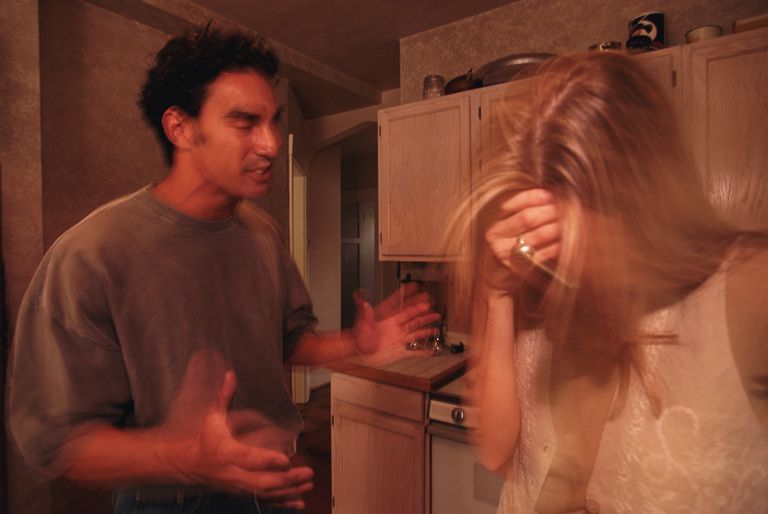 There was a time when domestic violence was effectively ignored both society and the law. Both considered it a private affair, meaning people rarely intervened and the law infrequently pursued charges against abusers. Today, however, domestic violence is taken very seriously and abusers are punished harshly by the courts. In fact, sometimes it seems as though the pendulum has swung too far in the other direction, causing law enforcement officers to make an arrest when it really was just a heated argument, not abuse. If you were arrested and charged with domestic assault you may be wondering if your spouse can drop the charges. While that was once possible, an Omaha criminal defense lawyer explains why it isn’t that simple anymore.
There was a time when domestic violence was effectively ignored both society and the law. Both considered it a private affair, meaning people rarely intervened and the law infrequently pursued charges against abusers. Today, however, domestic violence is taken very seriously and abusers are punished harshly by the courts. In fact, sometimes it seems as though the pendulum has swung too far in the other direction, causing law enforcement officers to make an arrest when it really was just a heated argument, not abuse. If you were arrested and charged with domestic assault you may be wondering if your spouse can drop the charges. While that was once possible, an Omaha criminal defense lawyer explains why it isn’t that simple anymore.
Understanding the Criminal Justice Process
To understand why your spouse doesn’t have the power to drop the charges against you, it helps to understand how the criminal justice system works. To start with, many law enforcement agencies now have very strict policies with regard to domestic assault calls. These policies often require officers to make an arrest if there is any evidence of abuse or even if there is just an accusation. Police officers, however, do not actually make charging decisions. The arresting officer files a report with the prosecuting attorney’s office. The prosecutor then decides if charges should be filed against the individual and, if so, what charges to file. It is the State of Nebraska, therefore, that has charged you with domestic assault, not your spouse.
Why Your Spouse Can’t Drop the Charges
Although your spouse may be the alleged victim, he/she does not have the power to “drop the charges” because it is the State that decides whether to pursue charges or not. Moreover, there is as a matter of policy, the State doesn’t want an alleged victim to have the power to decide whether an abuser is prosecuted or not because that puts them in a difficult position. In the past, victims of domestic abuse would frequently claim they wanted the charges dropped because they feared repercussions from the abuser if they pursued the abuse charges. Unless the batterer was sentenced to a lengthy term of imprisonment – something that rarely happened – the victim was in far more danger after reporting the abuse than before doing so.
What Your Spouse Can Do
While your spouse cannot directing drop the charges, that doesn’t mean that he/she has no influence on the outcome. Typically, the prosecuting attorney will attempt to contact an alleged victim to find out what their feelings are about the case. If your spouse indicates that it truly was just a heated argument and not abuse, the prosecuting attorney may be persuaded to dismiss the charges. The same may be true if the prosecuting attorney is unable to get in contact with your spouse because, in most cases, the State needs the alleged victim’s testimony to convict a defendant of domestic abuse. The exception to this is when there is another witness to the abuse and/or compelling physical evidence of the abuse.
Obeying the Court’s Orders
A note of caution is warranted. At your initial hearing, the court may have issued a “no contact order” prohibiting you from contacting your spouse in any way until the case is resolved. If so, this means you cannot discuss the case with your spouse, much less ask him/her to discourage the prosecuting attorney from moving forward with the case. If you believe your spouse doesn’t want to see you convicted, consult with an experienced Omaha criminal defense lawyer about your legal options. Your attorney can attempt to contact your spouse and may even be able to get the no contact order vacated; however, if you violate the order before that occurs you could be facing additional criminal charges and be returned to custody pending the resolution of your case.
Contact an Omaha Criminal Defense Lawyer at Petersen Law Office
If you have been arrested for domestic assault in Nebraska, consult with an experienced Omaha criminal defense lawyer as soon as possible. In Nebraska contact Petersen Criminal Defense Law 24 hours a day at 402-509-8070 to discuss your case.


